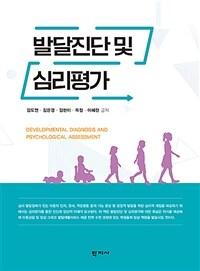책 이미지

책 정보
· 분류 : 국내도서 > 대학교재/전문서적 > 인문계열 > 고고학/인류학
· ISBN : 9788968490439
· 쪽수 : 454쪽
목차
Preface / 004
Japanese Colonial Context in the Early Making of Korean Anthropology __ Hyup Choi / 009
Anthropology of Colonialism and War under Imperial Japan __ Kyung-soo Chun / 027
Japanese Mode of Anthropological Study on Korea __ Abito Itoh / 119
The Genealogy of Ethnographic Surveys on Korea:
A Retrospective Examination of Suzuki Eitaro's Chosen Noson Shakai Tosaki __ Hiroshi Honda / 132
Korean Society as seen from the Japanese Perspective:
A Thorough Analysis of Books Published in Japan __ Toshio Asakura / 165
Appendix
Bibliography: Japanese Studies on Korea __ Seiichi Matsumoto / 201
Index / 448
저자소개
책속에서
Anthropology is often referred to as 'the study of other cultures.' Hence many foreign anthropologists have chosen
Korea as their field of study. Among the foreign anthropologists who have studied Korea and Korean culture, Japanese
anthropologists have been the dominant majority.
On account of geo-political reasons, Japan has a long history of studying the Korean peninsula. Most of the studies
done before 1945 were carried out in connection with Japan's colonial expansion. To aid the colonial rule, the
Japanese colonial government initiated various studies on Korean peninsula. At first, these were limited to studies on
geography and natural resources, but were later expanded to include history, society, and culture. It is only in recent
years that Korean anthropologists have shown some interests on these materials. The first visible sign of this interest
was to be seen at the 34th annual meeting of The Korean Society for Cultural Anthropology held at KangWon National
University during May 31 - June 1, 2002. At the meeting, a session was specifically assigned to examine the nature of
socio-cultural studies done by Japanese anthropologists and folklorist during the Japanese occupation. The
underlying assumption in this session was that the Japanese imperial power used anthropology for controlling and
dominating Korea, then a colony of Imperial Japan.
Following the Second World War, the academic climate of Japan has changed. Since 1945, a new breed of
anthropologists has been educated, and they have produced diverse and numerous anthropological studies
concerning Korean culture and society. However, these numerous studies which have appeared since 1945 have
never been the subject of systematic examination by Korean anthropologists, as most of such works were primarily
circulated within Japanese academic circles. It is regrettable that no systematic attempt has been made to review and
evaluate existing literature on Korean society and culture which was produced by the post-war generation of Japanese
anthropology. Therefore, there is a critical need for research to examine these materials. The present book is a small
step forward to deal with such research needs.
A group of anthropologists from Korea and Japan gathered during March 13-14, 2003 at Chonnam National University
for a workshop entitled "Inter-cultural understanding through academic discipline of anthropology between Japan and
Korea". This group exchanged ideas and opinions concerning the problem of cultural representation and the issues
surrounding cultural understanding. After the workshop, some participants agreed to write a paper aiming at the
examination and evaluation of Japanese anthropological studies on Korea. This volume contains the works of those
anthropologists who kept their promises. The result includes five articles and an extensive bibliography of Japanese
works on Korea.
Korean anthropologists, Hyup Choi and Kyung-soo Chun, focus their analysis on the colonial influence of Japan. As
the disciplinary work of academicians should be considered as a part of socio-cultural products, the proper evaluation
of the Japanese anthropological works during the colonial period inevitably invites consideration of colonial context.
Kyung-soo Chun further deals with Japanese imperialism during the colonial era in relation with the discipline of
ethnology - namely, anthropology in terms of methodology.
Three Japanese anthropologists, on the other hand, deal mainly with post-colonial Japanese anthropology of Korea.
Abito Itoh's paper deals with Japanese anthropology in terms of theoretical and methodological orientations in studying
Korean culture after World War II. Hiroshi Honda attempts a retrospective reading of Chosen noson shakai tosaki (1944)
written by Japanese sociologist Suzuki Eitaro so as to suggest other important research themes on the structure and
composition of Korean local society. Honda's article presents a sort of reflexive point of view as a present-day
Japanese ethnographer. Toshio Asakura's article is a comprehensive review of the books on Korea published after
1980 in Japan. He aims at identifying the aspects of Korean culture which have attracted a great deal of attention from
Japanese intellectuals. Seiichi Matsumoto compiles a very extensive bibliography on Japanese publications
concerning Korea in the fields of anthropology, ethnology, and folklore. Because of this comprehensive bibliography,
this volume will serve as a good reference source book for those who are interested in any type of research
concerning Japanese anthropological works on Korea.
This book is indebted to The Asia Research Fund as it provided financial assistance for the workshop held at
Chonnam National University in 2003. Professors Mun-woong Lee and Kyung-gu Han who participated in the workshop
also made indirect contributions through various discussions along the way. It is hoped that some of the theoretical and
methodological issues raised by the authors in this volume will further stimulate more discussions among Korean and
Japanese anthropologists, as it will certainly serve as a significant contribution to inter-cultural understanding through
the academic discipline of anthropology between Japan and Korea.
June 3, 2013
Hyup Choi

































